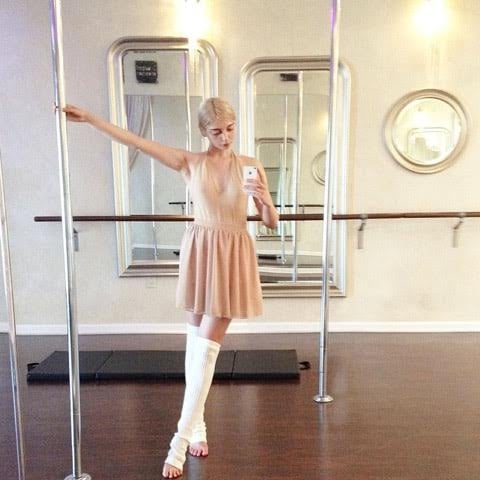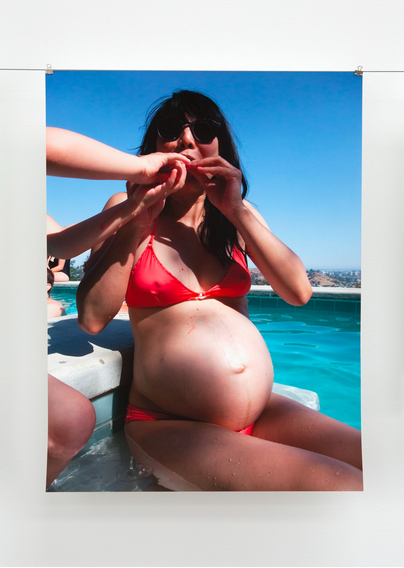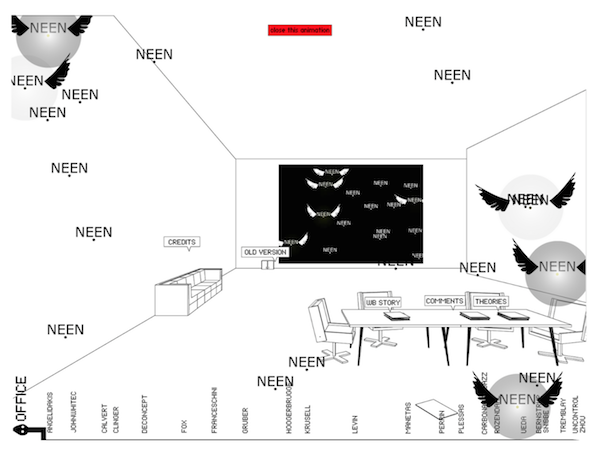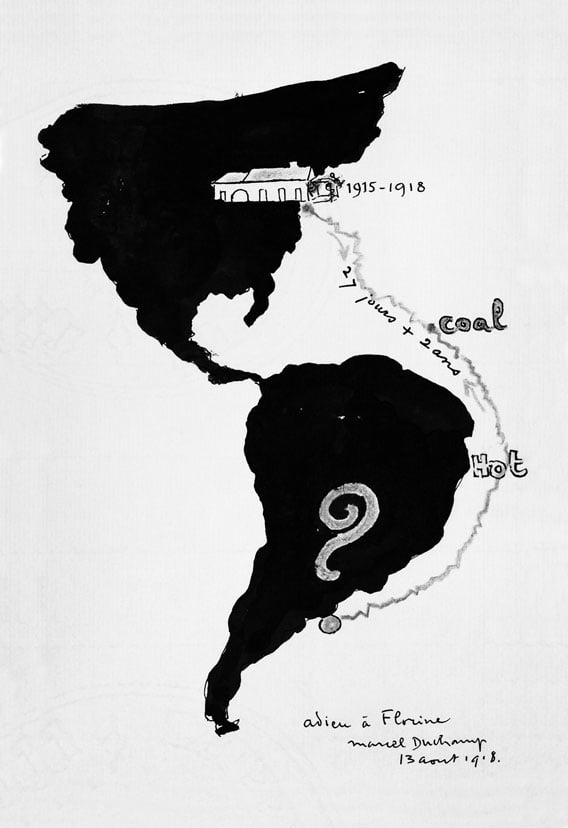Galleries
10 Must-Read Art Essays From August 2015
Marcel Duchamp in Argentina, Amalia Ulman on Instagram, and more.

Photo: Courtesy Temporary Art Review
Marcel Duchamp in Argentina, Amalia Ulman on Instagram, and more.

Ben Davis


A.L. Steiner, Untitled (Anna eating) (2014).
Image: Courtesy Blum & Poe.
1. “A.L. Steiner’s Personal Archive: Underground Heroes, Everyday Lovers, and Global Catastrophe” by Andrew Berardini, Momus
Not so much a review as a tribute, in Berardini’s characteristically vibrant prose, to the ways in which the “skeptical queer eco-feminist androgyne” art of A.L. Steiner (at Blum & Poe) might just help art deliver on its promise to be a support system for those who want to imagine a different world.
2. “Can Science Fiction Help Us Dream Our Way Out of Disaster?” by Claire L. Evans, Creative Time Reports
What art can do when faced with the sheer massiveness of climate change is a hot topic. Evans steps into the debate, coining a new term for sci-fi that helps grasp the challenges of a fast-changing future: Anthropocene fiction.
3. “The Data Journalism That Wasn’t” by the Future of Music Coalition, FutureOfMusic.org
The New York Times’s Steven Johnson feature, “The Creative Apocalypse That Wasn’t,” about the Internet’s benevolent effects on the finances of musicians, authors, and other “creatives,” was much-debated. This rebuttal (from one of his sources no less!) was in some ways more illuminating than the piece itself, showing just how difficult it is to account for creativity.

Screenshot from whitneybiennial.com (2003 version)
Image: Courtesy Rhizome.org
4. “The Flash Artists Who Cybersquatted the Whitney Biennial” by Lucas G. Pinheiro, Rhizome
The fascinating and fascinatingly contested tale of web art pioneer Miltos Manetas’s oddball 2002 Internet response show to the Whitney Biennial, and its fallout.
5. “How I Learned to Stop Worrying and Quit Facebook” by Rainey Knudson, Glasstire
The publisher of the indispensable Texas art site Glasstire makes a thoughtful contribution to what is fast becoming a major genre of essay: the social-media opt-out.

Marcel Duchamp, Farewell to Florine (Adieu à Florine) (1918)
Photo: Courtesy Philadelphia Museum of Art
6. “Marcel Duchamp Does Not Exist” by Cioran McGrath, 3am Magazine
Revisiting Marcel Duchamp’s little-remembered 1918 trip to Buenos Aires as a parable of the tensions of early globalization. Really interesting!
7. “The Revolution Is Dead—But Long Live the State!” by Coco Fusco, Supercommunity/e-Flux Journal
Wary, unsparing take on how art politics (or anti-politics) intersect with geopolitics in Cuba.
8. “What I Learned From a Disgraced Art Show on Harlem” by Holland Cotter, The New York Times
Revisiting the uproar around “Harlem on My Mind,” the Metropolitan Museum’s tin-eared 1969 attempt to pay homage to African-American art.

Amalia Ulman, Excellences & Perfections (Instagram Update, 3rd June 2014)
Photo: Courtesy Temporary Art Review
9. “Whose Bodies II” by Rózsa Zita Farkas, Temporary Art Review
Farkas, founder of the London-based curatorial platform Arcadia Missa, explores the stakes of online feminism through the lens of Amalia Ulman’s recent Instagram-based performance project, Excellences and Perfections.
10. “Why Galleries Could Take Even More Money From Their Artists” by Magnus Resch, Edward Winkleman, William Powhida, Sylvain Levy, and Kenny Schachter, The Art Newspaper
Say what you will (and much has been said) about Magnus Resch’s proposal that galleries redraw the social contract with artists in favor of a 70/30 split (as opposed to the traditional “halfsies”), but it has touched off a conversation that offers a rare window into the back-office politics of art.